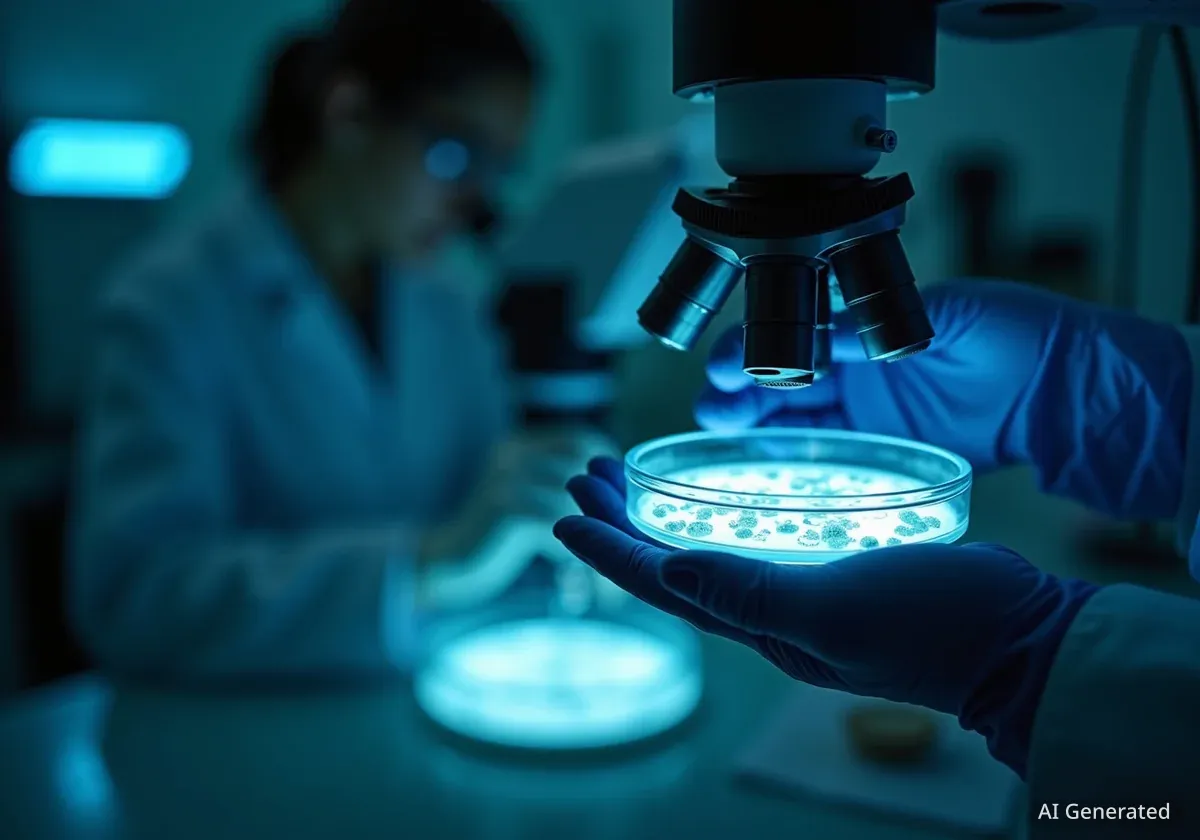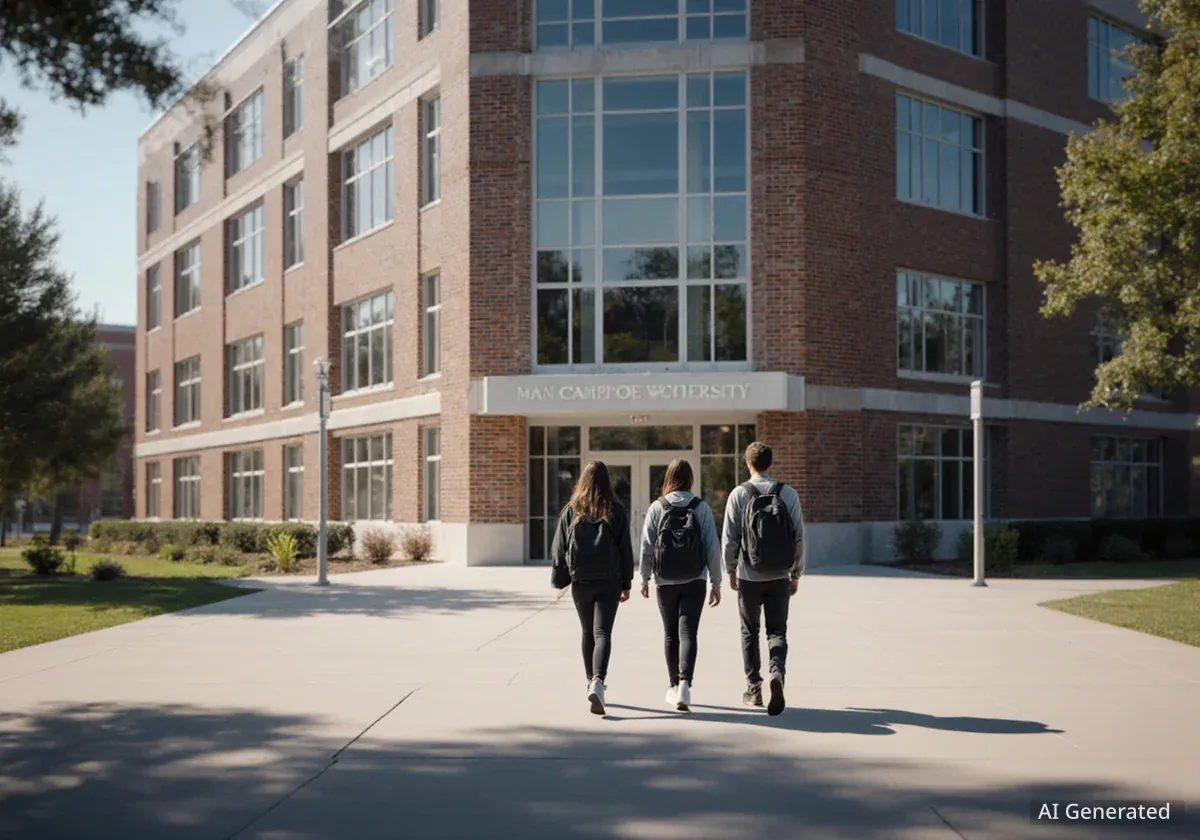Federal authorities have charged three Chinese nationals working as researchers at the University of Michigan in connection with a conspiracy to smuggle biological materials into the United States. The charges, announced Tuesday, mark the latest development in a series of security incidents linked to a specific research laboratory at the Ann Arbor campus.
Key Takeaways
- Three Chinese researchers at the University of Michigan face federal charges for smuggling and making false statements.
- The researchers, Xu Bai, Fengfan Zhang, and Zhiyong Zhang, worked in the same lab as a previously charged individual.
- Allegations involve concealed shipments of genetically modified roundworms sent from China between 2024 and 2025.
- Officials have described the incidents as part of an "alarming pattern" of criminal activity connected to the university.
Federal Charges Unveiled in Ann Arbor
Three researchers, all holding J-1 visas to work at the University of Michigan, are facing federal prosecution. Xu Bai, 28, and Fengfan Zhang, 27, have been charged with conspiracy to smuggle biological materials into the country. A third researcher, Zhiyong Zhang, 30, faces a charge of making false statements to federal agents regarding the alleged scheme.
All three individuals were conducting research at the Xianzhong Xu laboratory, commonly known as the Shawn Xu laboratory, at the university. According to the Department of Justice, the charges stem from an investigation into shipments received from China containing concealed biological samples.
A Troubling Connection
The investigation is linked to a previous case involving Chengxuan Han, a Ph.D. student from Wuhan, China. Han, who later came to work at the same University of Michigan lab, was charged with smuggling and making false statements in June. She pleaded no contest and was subsequently removed from the United States in September, barred from re-entry.
Details of the Alleged Smuggling Operation
Court documents allege that between 2024 and 2025, Bai and Fengfan Zhang received multiple packages from China. These shipments reportedly contained biological materials related to roundworms which had undergone genetic modifications. Authorities state the materials were concealed within the packages.
The shipments were allegedly sent by Chengxuan Han before she traveled to the U.S. to join the same lab. Federal prosecutors noted that Bai and F. Zhang admitted to Customs and Border Protection (CBP) officers that they continued to receive packages from Han even after her arrest and removal from the country.
"Allegedly attempting to smuggle biological materials under the guise of ‘research’ is a serious crime that threatens America’s national and agricultural security," Attorney General Pam Bondi said in a statement. "We will remain vigilant to threats like these from foreign nationals who would take advantage of America’s generosity to advance a malicious agenda."
An "Alarming Pattern" Emerges
Federal officials have expressed significant concern over what they describe as a recurring issue at the university. Jerome Gorgon, the U.S. Attorney for the Eastern District of Michigan, characterized the recent charges as part of a "long and alarming pattern of criminal activities committed by Chinese Nationals under the cover of the University of Michigan."
Gorgon further stated, "At some point, pattern becomes practice," highlighting the perceived threat to national security. This sentiment was echoed by FBI Director Kash Patel.
"The Chinese nationals charged today allegedly were involved in smuggling biological materials into the US on several occasions," Patel said. "The FBI and our partners are committed to defending the homeland and stopping any illegal smuggling into our country."
Related Incidents
In the same month as Han's arrest, a separate case involved a Chinese national couple, Zunyong Liu and Yunqing Jian. They were charged in an alleged plot to smuggle a dangerous fungus into the U.S. that is capable of destroying crops and poisoning humans and livestock. Prosecutors claimed the couple intended to use the same University of Michigan lab to advance their plans.
University Response and Suspects' Actions
Following the arrest and removal of Chengxuan Han, the University of Michigan launched its own internal investigation into the Shawn Xu laboratory. According to the Justice Department, all three of the newly charged defendants—Bai, F. Zhang, and Z. Zhang—refused to cooperate.
The university had scheduled a mandatory meeting as part of its inquiry, but the three researchers did not attend. Their refusal to participate in the investigation led to the termination of their employment.
After being fired, the trio reportedly booked flights to China from two different U.S. airports: Detroit Metropolitan Airport and John F. Kennedy International Airport in New York. They did not appear for their scheduled flight from Detroit and did not cancel the booking. Instead, they traveled to New York, where they were interviewed by federal law enforcement agents at JFK airport.
During these interviews, Zhiyong Zhang allegedly made false statements about Chengxuan Han, leading to the charge against him. The case was the result of a multi-agency investigation involving the FBI, CBP, Immigration and Customs Enforcement (ICE), and Homeland Security Investigations (HSI).





